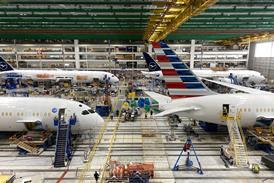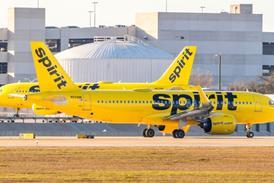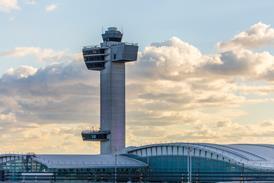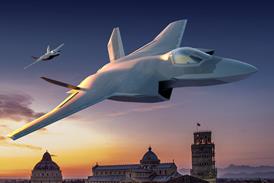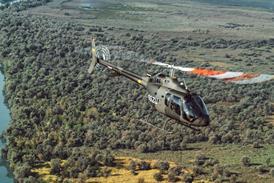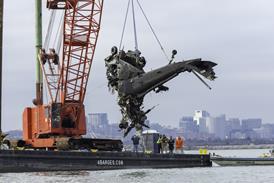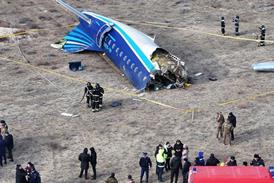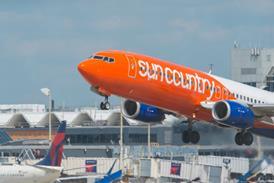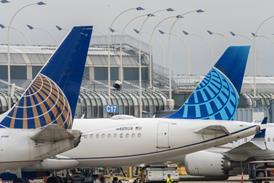Etihad Airways is confident it will build on the profitability breakthrough it achieved in 2011 with continued solid results going forward, and expects to recoup its $100 million investment in Air Berlin within two years.
The Abu Dhabi-based network carrier reported its first profit in 2011, eight years after its launch during a period of sustained, rapid growth. "Six years ago we were turning over $300 million. This year we'll turn over $5 billion," says James Hogan, who was appointed Etihad's chief executive in 2006.
Etihad made an operating profit (EBIT) of $137 million and a net profit of $14 million in 2011, on revenues of $4.1 billion. Hogan tells Airline Business that last year's success - which came in the face of volatile oil prices, the Arab Spring and Japanese disaster - was the result of a good fuel-hedging policy, cost control and high load factors. "I've moved into profitability and I'll stay there," he adds.
In parallel with its move into the black, Etihad has undertaken a series of investments in other airlines during the past six months, the most significant of which was its acquisition in December of a 29% stake in loss-making German airline Air Berlin. It has also acquired a 40% stake in Air Seychelles and recently a 3% holding in Aer Lingus.
Speaking prior to the disclosure of taking a small stake in the Irish carrier, Hogan confirmed Etihad was "looking at one or two investment opportunities, where there are network synergies, but we're not going to take on someone else's problems".
The Air Berlin involvement is "a long-term project", says Hogan. "It's about stretching the network." He says the deal is helping it overcome difficulties it has had accessing the large European corporates and travel management companies in Germany, Austria and Switzerland. "Overnight we've been able to enter the German market through Air Berlin. It's helped us become a household name in the country."
Air Berlin benefits from the deal through economies of scale, synergies, and the buying power that Etihad brings. "We've spent just under $100 million for 29% and we believe with incremental revenue we can claw that back in two years' time," says Hogan, who adds it is already seeing strong passenger flows through the tie-up.
Additionally, Etihad has loaned Air Berlin $250 million to help it meet pre-delivery payments on the 15 Boeing 787s it has on order. "This will be paid back over the next five years at commercial rates and that's been securitised too," says Hogan. "That got them over a short-term gap." Air Berlin's 787 order has been merged into Etihad's existing 787 deal, which takes their combined backlog to 56 aircraft. The two fleets will share common interiors (but different colours) and economies of scale will be achieved through joint maintenance, repair and overhaul arrangements, spares provisioning, training etc.
Air Berlin has also started to install the Etihad business-class product into its Airbus A330s.
In response to sustained losses, the German airline slashed its fleet and routes during its "shape and size" cost and efficiency drive last year, and installed Hartmut Mehdorn as interim chief executive. It reported an operating loss of $247 million for 2011 but Hogan says he has faith in the Air Berlin management team and its restructuring programme. "I'm confident they'll turn the business around in the next 24 months," he says.
Etihad has also come to the rescue of Air Seychelles - a deal Hogan says came about after the Seychelles government approached Etihad to help out. "They've implemented a restructuring programme, are returning their 767s and leasing A330s, and reducing the headcount by 250," he adds.
Meanwhile, Etihad's rapid growth is set to continue, with passenger numbers expected to rise from 8.3 million last year to 10 million in 2012, while revenue should increase 20% to reach $5 billion this year.
The fleet is set to rise from 64 units to 71 aircraft at the end of 2012, and reach about 160 by 2017. The first 787s, along with initial Airbus A380s, are due to arrive in 2014.
The status of the airline's long-term commitment to the Airbus A350-1000 is less clear. Etihad has halved its order from 25 to 12 amid concerns over the robustness of the delivery schedule, which is due to start in 2017. "We're still taking A350-1000s, but we took the view that the delivery could be at risk so we changed the orders and built up the 787 order," says Hogan.
The airline, which plays outside the three global alliances but has extensive links with other airlines, generates 20% of its revenues through these tie-ups. "We've got 36 codeshare partners and we're seen as a friendly independent - that's why we've got good relationships with SkyTeam, Star and Oneworld," Hogan says.
These tie-ups will be extended when the airline begins services to South America in June next year. It is finalising codeshare negotiations before route details are announced.
Etihad is also exploring co-operation with SkyTeam carrier Air France, which could see the airlines codesharing on Etihad's Paris-Abu Dhabi services and linking loyalty programmes.
Source: Airline Business

